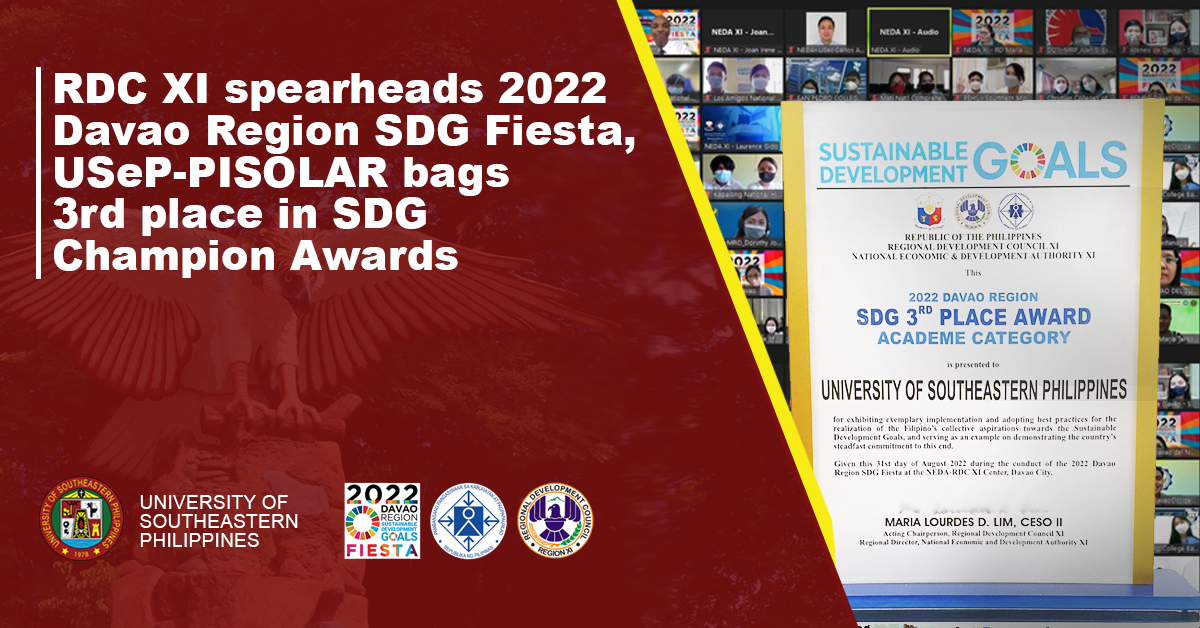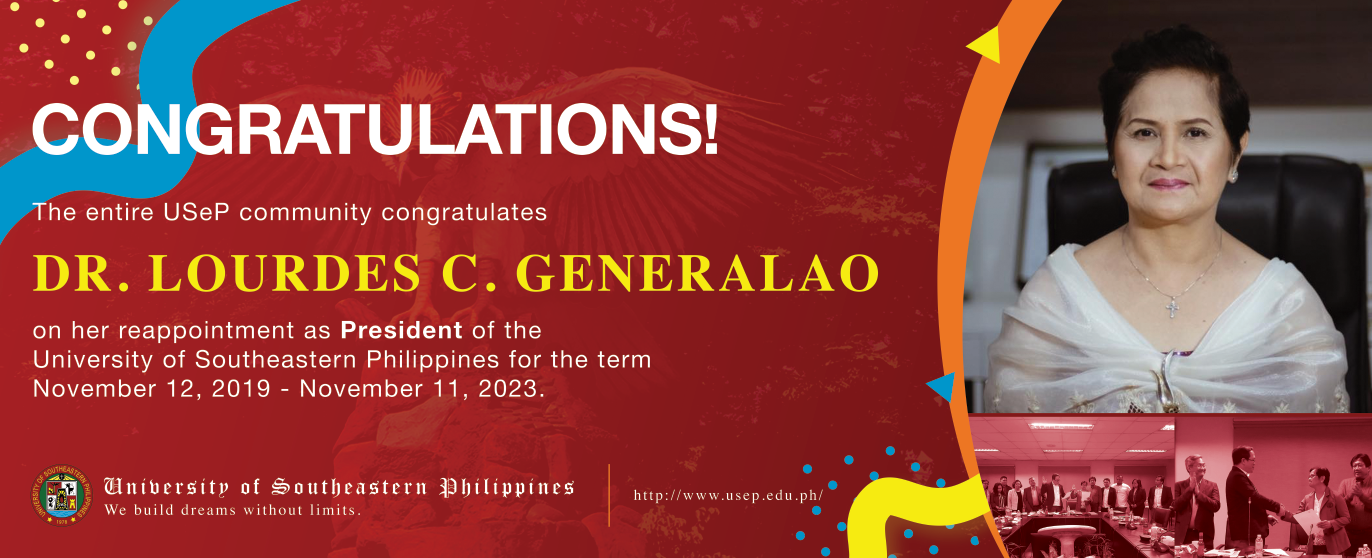Committed to furthering and eventually realizing the United Nations’ Sustainable Development Goals (SDGs) which are intended to be achieved by 2030, the University of Southeastern Philippines (USeP) participated in the first Davao Region SDG Fiesta on August 31, 2022, via Zoom and Facebook Live.
The National Economic and Development Authority- Regional Development Council XI (NEDA-RDC XI) spearheaded the said event together with 280 participants from the region’s various development sectors and stakeholders such as the RDC-XI member agencies and offices, Government-owned and Controlled Corporations (GOCCs), academe partners and schools and Local Government Units (LGUs).
Themed with, “Local Actions, Global Impact”, the event put front and center the importance of localized engagement and appreciation of the SDGs as well as mainstreaming and replication of SDGs not only into national government plans and programs, but also into the everyday lives of Filipinos.
The event also highlighted knowledge-sharing sessions, showcases, and contests such as SDG Quiz Bee, SDG Photojournalism contest, and SDG Champion Awards to further enhance the Davaoenos’ appreciation and awareness of the SDGs.
USeP joins SDG Champion Award contest
One of the highlights of the 2022 Davao Region SDG Fiesta was the SDG Champion Award where LGUs/ offices/organizations who exhibited exemplary implementation and best practices towards the realization of Filipino’s collective commitments towards the SDGs were acknowledged.
USeP joined the said contest under Academe and Schools Category by submitting its Project, Activity, and Program (PAP) entry titled, PISOLAR: Payment Innovation for SHS Ownership by Lay Away Routine. Other categories for the said award were LGU and GOCCs/NGAs/Water Districts Category.
The University won third place in the said categories out of 44 entries from State Universities and Colleges (SUCs), Higher Education Institutions duly recognized by CHED, public and private schools duly recognized by DepEd, technical or vocational institutions duly recognized by TESDA, civil society groups or private organizations, local government units, and entities/instrumentalities operating within or for Davao Region.
USeP received a plaque and certificate of recognition for the said placement.
PISOLAR lights up communities, attains SDG
PISOLAR, an acronym for Payment Innovation for SHS Ownership by Lay Away Routine, is a program funded by the Department of Science and Technology (DOST) under the Science for Change Collaborative Research and Development to Leverage Philippe Economy (CRADLE) Program and developed by USeP- Research, Development, and Extension (RDE) in partnership with Leadtech Inc., a manufacturing company which fabricates solar home kits.
Completed in June 2021, PISOLAR aims to address SDG number 7: Ensure access to affordable, reliable, sustainable, and modern energy for all; particularly 7.1.1. The proportion of population with access to electricity.
Two (2) geographically isolated and disadvantaged areas (GIDAs) namely, Sitio Igang, Brgy. Palma Gil, and Sitio Salapion, Brgy. Sto. Nino, Municipality of Talaingod, Davao del Norte benefitted from the project up to the present with 52 households being lit; 19 of which are from Sitio Igang and 33 from Sitio Salapion.
“On behalf of the team, we would like to thank the DOST for this grant as we are able to effect meaningful change in the lives of the Lumad people. Definitely, Pisolar doesn’t end here.” Engr. Filmann T. Simpao, PISOLAR project leader said during an interview with DOST. “I hope more researchers like me are open to collaboration with DOST as they have programs that support not only us but also the people,” he added.
The said technology is a registered patent invention with Patent Registration Number 12017050082 and was adopted as an extension program of the USeP College of Engineering.
Furthermore, the Regional Development Council XI supported the project’s output through Resolution No. 90 s. 2022 to support and adopt the PISOLAR project for deployment in various GIDAs in Davao Region and in Mindanao with appropriate funds.




